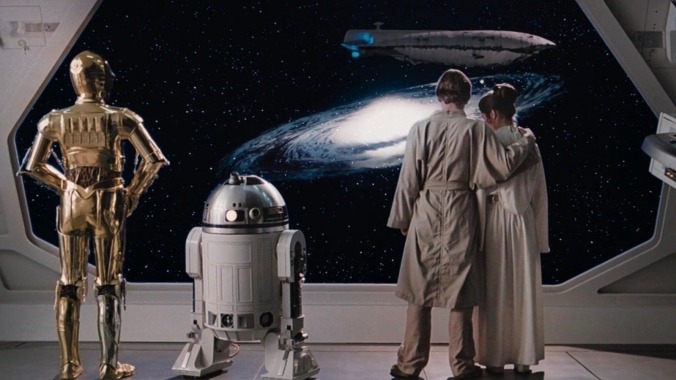The agony and ecstasy of movie cliffhangers
Open endings for movies like Mission: Impossible and Across The Spider-Verse leave some viewers frustrated, but others hungry for more

We’re over halfway through 2023 and there are already three major blockbusters with cliffhanger endings. First came Fast X, the 10th installment of the Fast And Furious franchise and the first half of the main series’ 11th and final film, which is scheduled for release in 2025. Then there was the animated blockbuster Spider-Man: Across The Spider-Verse, the middle chapter in a trilogy set to conclude with next year’s Spider-Man: Beyond The Spider-Verse. Last is Mission: Impossible—Dead Reckoning Part One, the seventh installment of the Tom Cruise series, and you can deduce from its title that the story will not be resolved until Dead Reckoning Part Two hits theaters in June 2024.
While this is hardly a new trend—the origins of the movie cliffhanger stretch back more than a century—it seems to be on the rise of late. Yes, Peter Jackson won a shelf full of Oscars almost 20 years ago for The Lord Of The Rings: The Return Of The King, his cliffhanger finale to his ambitious Lord Of The Rings trilogy. But most fans knew what they were getting into when they signed on for that film franchise adaptation.
More recently, moviegoers have found themselves surprised and even frustrated after paying to sit through a 155-minute movie like 2021’s Dune or 135 minutes of 2017’s It just to find out at the end that they were only getting half an adaptation. And, of course, there are the Marvel and DC films, which have tested the patience of fans with their frequent focus on unfinished endings.
Who is Pauline and how did she change movies forever?
[pm_embed_youtube id=’PLjWddXHkjgZerflq18ursfs1y8gjgdOkr’ type=’playlist’]Cliffhangers have been around almost as long as movies themselves. The origins of the term “cliffhanger” can be traced to the biweekly 1914 film serial The Perils Of Pauline, produced by William Randolph Hearst and starring Pearl White as Pauline. Each installment would end abruptly, sometimes with White literally hanging onto a cliff. Early moviegoers would have to come back in two weeks to see what happened to her, and no one seemed angry or cheated that they were left in suspense. It helped that these early serials were short, usually 20-30 minutes each, and that moviegoers knew going in that The Perils Of Pauline was going to be an ongoing serial broken into many parts.
Fast-forward to the 21st century and audiences don’t always go into a theater knowing if the movie they are paying to see already has a sequel in the works. Many would have appreciated knowing that 2021’s Dune was only the first part of director Denis Villeneuve’s adaptation of Frank Herbert’s 1965 original novel, even if Herbert fans know that the saga is too epic to be told in one film—just ask David Lynch.
Stephen King’s It is 1,138 pages, so many fans expected the movie to be broken into two parts even before the end credits of 2017’s It confirmed that the film was indeed only Chapter One. The fact that both of these lengthy novels were split into movies with two installments each isn’t too surprising, but playing coy about this strategy until opening day runs the risk of alienating some moviegoers, who would prefer a one-and-done approach. People tend to like to know what they are paying for, and many feel duped if they find out they are essentially paying for half a movie.
The ultimate cliffhanger was released “a long time ago…”
There are some films that expertly execute a cliffhanger, and one of the best is Star Wars: Episode V–The Empire Strikes Back. After the success of Star Wars: Episode IV–A New Hope, there was little question that Star Wars was going to be an ongoing saga and moviegoers were aware going in that The Empire Strikes Back was the second chapter in a planned trilogy. The movie ended with the scene pictured above, with the Rebel Alliance on the run, Luke Skywalker down a hand and discovering that Darth Vader is his father, and Han Solo frozen in carbonite.
The fact that we knew the next movie—and the answers to our questions—was three years away didn’t diminish Empire’s power one bit. Many fans—including this one—consider Empire the best movie in the entire franchise, even though the Irvin Kershner-directed middle chapter of the original trilogy has the most unresolved ending.
 Keep scrolling for more great stories.
Keep scrolling for more great stories.
